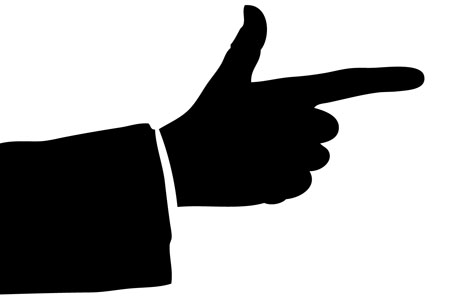
Undercover ops and fancy gadgetry; cold War tensions and hand-to-hand combat; secret government programs and high-speed chases—espionage films have been a mainstay in Hollywood since before WWII, and recent years have only seen an uptick in their popularity.
Little wonder, they're full of action, mystery, exotic locales, and sex. Everyone always looks so cool with their designer duds, sharp sunglasses, and shiny guns.
In the mood for some derring-do? Here's the crème de la crème of the bunch. This is hardly an exhaustive list—think of it more as a primer of the need-to-knows in the genre.
So here's your mission, should you choose to accept it…
James Bond (Daniel Craig's tenure)

Getting the most obvious one out of the way first—you simply can't talk about spies and assassins without mentioning the synonymous-with-spycraft MI6 agent. The eternal debate over “the best Bond” really comes down to whether you prefer your spies campy or serious—me, I'm in the latter category. Connery and Brosnan's films have plenty of entertainment value, yes, but my favorite take on Bond has to be Daniel Craig's.
As a whole, his tenure has produced the best movies in every sense of the word: best casts, action, villains, cinematography, and emotional resonance. Skyfall tops the list as the series' finest installment (so far), with Javier Bardem's unsettling Silva, a standout in a colorful rogue's gallery, and a gothic second act that's almost better than the first. When you pull in the big guns, like Oscar-winning directors and cinematographers, you get serious quality in return.
I also love how Craig's films have shown Bond's relationships with women beyond the carnal sense: his very real feelings for Vesper (Eva Green) and subsequent heartbreak in Casino Royale gives context to all of his trust issues; Quantum of Solace may be the weakest Craig film, but it also gave us a brother/sister dynamic between Bond and Camille (Olga Kurylenko) as he mentors her in her quest for vengeance; and Bond's prickly yet devoted relationship with M (Judi Dench) reaches peak mother/son dynamics in Skyfall.
Jason Bourne (The Bourne series)
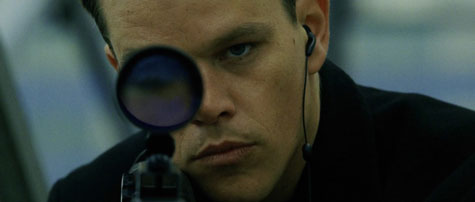
This is one of those rare cases where the movie adaptations are better than the source material. The Jason Bourne on the silver screen has very little in common with Ludlum's secret agent on the page, and Matt Damon's Bourne is much more human and interesting in comparison.
He's a government agent who lost his way in pursuit of spy perfection, only to rediscover his moral compass when he loses his memory. His lament at the close of The Bourne Identity—“I don't wanna do this anymore.”—is really the crux of his character. He's a guy who's been given superhero-level training, only to reject it all.
Bourne wants to be a normal guy yet can't help but kill a man with a magazine when threatened. (The fact that multiple agencies ignore his wishes and continue to pursue him just shows how stupid governments can be—when you create the perfect weapon, you listen to him when he says he's done.)
The Bourne films have brutal, breathless fights, and chases that make you feel as though you're in the car or the middle of the crowd. Damon's performance in each film perfectly expresses Bourne's deepening desperation and exhaustion, from initial amnesiac confusion to a hardened juggernaut on a quest for revenge.
There's some impressive world-building in this series, and even though I'm still more than a little angry at the unnecessary shelving of the love interest in the first sequel, I always look forward to each new installment. Whereas Bond feels like pure, male wish-fulfillment, there's a more grounded, real-world vibe to Bourne—he's a much more sympathetic hero.
Alex, Dylan, and Natalie (The Charlie's Angels films)
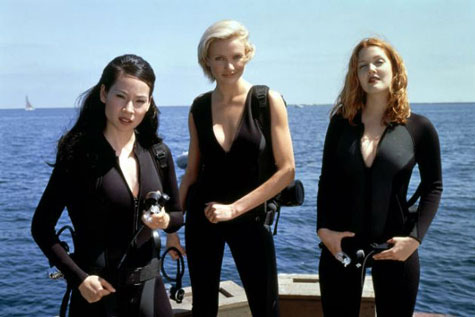
Mock these films all you want—I still maintain that they're modern classics. A little stupid, sure, but damn it if they don't give me a lovely, warm glow. They're just fun, and there's nothing wrong with having some fun with your secret agent action. Each lady in the trio is badass in her own way, emphasizing that a woman can be feminine or a tomboy, brainy or brawny, dorky or classy, in a committed relationship or playing the field—there's no wrong or right way to be a woman, after all.
You've got the absolutely perfect Lucy Liu (and when Lucy Liu tells you to flip your hair, you flip your hair), scads of action and silly cameos, and a core theme of female friendship that's framed as even more important than the world-saving. And how many movies do that, especially action movies?
A couple fun facts from the Charlie's Angels series:
- Look out for a pre-fame Melissa McCarthy in the first film as a perky Red Star employee.
- In the scene where the Angels are pretending to be yodeling milkmaids, Lucy Liu is actually playing the accordion—she picked up the instrument back in her Ally McBeal days.
- The reason why Bill Murray didn't reprise his role as Bosley in the sequel is because he apparently was quite an ass to the actresses during the first film, and exec producer Drew Barrymore didn't ask him to return, offering the role to Bernie Mac instead.
Illya Kuryakin, Napoleon Solo, and Gaby Teller (The Man From U.N.C.L.E.)
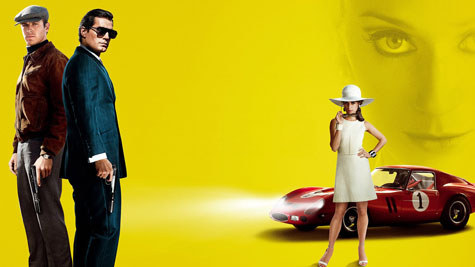
So an American plays a Russian, a Brit plays an American, a Swede plays a German, an Aussie plays a Brit married to an Italian, and they're all devastatingly pretty in killer threads.
And there's something about a missing Nazi scientist and nuclear warheads, but that's really beside the point.
This movie isn't about the typical Cold War spy plot; its real draw lies in the great chemistry and humor between the leads. The suave Solo (Henry Cavill), the violent Kuryakin (Armie Hammer), and the enigmatic Teller (Alicia Vikander) are a wonderfully mismatched team—and did I mention how smoking hot everyone is? (What? A girl can be shallow every now and then.)
The soundtrack is equally smoking, and director Guy Ritchie has a light touch with the standard spy tropes (fake relationships! femme fatales! torture!). I especially dig his clever use of flashbacks and montages. Also, considering its 1960s setting, this is a film that is refreshingly free of casual misogyny. It's the lady spy who's most competent at the actual spy craft—and the nefarious villain? A woman who's evil for the pure sake of being evil, no tragic backstory or man-motivated pain necessary.
Ethan Hunt (Mission Impossible)
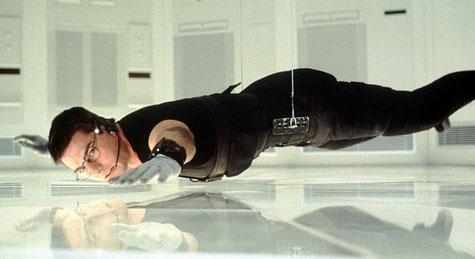
I may not be Tom Cruise's biggest fan, but even I have to admit that his turns as the adrenaline junkie, secret agent Ethan Hunt are always a lot of fun to watch. If any spy better embodies the spirit of “HARDCORE PARKOUR!,” I've yet to find them.
The Mission Impossible series is one of the few that consistently and successfully ups the ante. The last two installments have been even better than the first, due in large part to stellar supporting casts. Ghost Protocol brought in the smashing Paula Patton and Jeremy Renner—a lucky guy who's gotten to play a secret agent three times now, also appearing in The Bourne Legacy as Aaron Cross and the Marvel Cinematic Universe as Clint Barton/Hawkeye—and gave funny man Simon Pegg a lot more to do, while Rebecca Ferguson's double agent Ilsa Faust helped elevate the recent Rogue Nation.
What I always enjoy about Mission Impossible is how not even the sky is the limit. If James Bond sometimes pushes the envelope, Ethan Hunt and his team set it on fire before throwing it out of a cargo plane. The only way to beat an impossible mission is to be:
a) Completely insane
b) Utterly disregard your own safety
c) Be luckier than a bag of cats.
Everyone involved in the making of these films must have such fun.
Martin Blank (Grosse Pointe Blank)
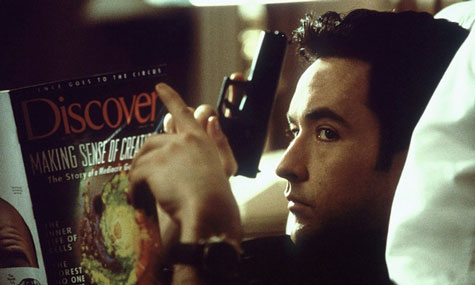
It's Martin (John Cusack)'s ten year high school reunion and he's of two minds about it. On the one hand, this could be his big chance to reconnect with his lost love and make amends for the mistakes of his youth. On the other hand, it's sort of difficult to talk about your accomplishments since graduation when you're a hit man.
What makes this movie so great is how it takes a ridiculous, original premise—an assassin goes to his high school reunion—and sprints towards the end credits. It's slapstick, it's goofy, it's outrageous, and the serious beats just make this unusual antihero all the more endearing.
It's not that Marty's a bad guy. He just found he had a particular skill set and put it to good use. So what if he's killed people (lots and lots of people) in the ten years since high school? As he puts it, “If I show up on your doorstep, chances are you did something to bring me there.”
Grosse Pointe Blank is also one of the few movies that gives the audience an inside look at how a freelance assassin might operate. Martin maintains an office space and a secretary (real life sister Joan Cusack in one of her funniest turns) like plenty of businessmen do; it's just that when he decides to close the business, the fire sale involves actual fire.
John and Jane Smith (Mr. and Mrs. Smith)
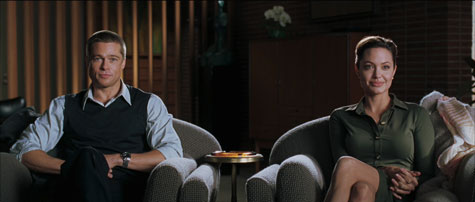
What's better than an assassin? Married assassins. Sure, it's interesting when one half of the relationship is hiding a double life. But when both are? That's when things get really good.
John (Brad Pitt) and Jane (Angelina Jolie) are assassins who happen to work for rival firms. John's firm has the feel of a mom-and-pop company where it's mainly just him and buddy Eddie (Vince Vaughn), while Jane's is high-rise sleek, expensive, and manned exclusively by ladies.
While juggling things like neighborhood parties and anniversary dinners, each manages to sneak out for an hour or two to kill the odd Irish gangster or Middle Eastern sleazeball. Then, it's back home to bicker over the new curtains and complain about how the green beans could use more salt.
Boy, do I love stories where couples fall back in love through a series of misadventures, and Mr. and Mrs. Smith takes that cake. The final shootout in a department store is surprisingly emotional given all of the preceding madcap action and funny dialogue. This movie feels a lot like the screwball rom-coms of the ‘30s and ‘40s, just with more gunfire and profanity.
Plus, the characterization is so fun. Jane's the more methodical and cutthroat of the pair, while John sings along to sappy ‘80s music and likes how practical a mini-van proves during a high-speed chase.
How great is it to see assassins, the very word calling to mind sophisticated globe-trotting, trapped in suburbia? This film is the spiritual cousin to Grosse Pointe Blank, the mundane setting only adding to the charm.
Black Widow/Natasha Romanoff (The Marvel Cinematic Universe)
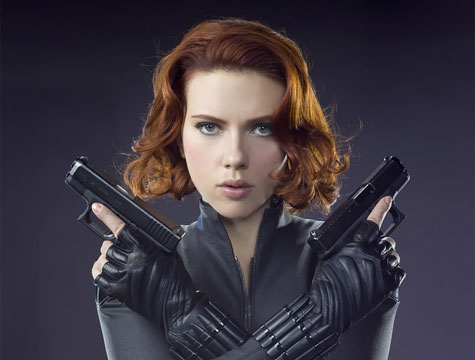
I know I'm the thousandth person to say so, but the fact that we have a dozen Batman movies/TV shows and nothing Black Widow-centric is a travesty—they have the same “superpowers” after all, with their killer gadgets, extensive martial arts training, and smarts.
Give us our Black Widow movie, Hollywood.
If Natasha Romanoff (Scarlett Johansson) was sainted, she'd be Our Lady of Concealed Weaponry. Thus far, her best appearance has been in Captain America: The Winter Soldier where she got to utilize a slew of spy techniques to help Cap save the day.
Rather than demote her to the usual romantic role reserved for the sole female character in an action flick, directors Anthony and Joe Russo chose to portray her as Steve Roger's equal by having them team up without a hint of will-they-won't-they. The Captain's name may be on the title card, but in a lot of ways, it's Black Widow's movie as much as it is his.
In most action films, the “big hero ploy” would involve some epic fight or act of righteous violence, but in Winter Soldier, Black Widow steals that moment when she dumps all of S.H.I.E.L.D.'s files online, exposing HYDRA.
She sacrifices herself, revealing all of her covers and airing her dirty secrets for the world to see in order to stop the baddie. For a spy who has stayed alive by spinning a tangled web of lies, choosing to be completely honest is sort of A Big Deal.
Black Widow embodies most of the qualities that go part and parcel with the spy genre—everything that makes spies mysterious and exciting and keeps us coming back for more. She's got a tragic backstory full of grueling training and experimentation; she's a chameleon and master of disguise; she's well-versed in any number of languages and weapons; and she's an expert hacker, killer, saboteur, infiltrator, thief, and hero.
Plus, she's a former KGB operative whose origin story centered around the Cold War. Where would the spy genre even be without the Cold War and Russia?
As I said, this list is hardly exhaustive (and woefully American-centric), so if you've any further recommendations, please do leave them in the comments. And if you haven't managed to catch Guy Ritchie's The Man From U.N.C.L.E. yet, please do. It won't be in theaters for much longer, and it's a rousing way to spend two espionage-themed hours.
Angie Barry wrote her thesis on the socio-political commentary in zombie films. Meeting George Romero is high on her bucket list, and she has spent hours putting together her zombie apocalypse survival plan. She also writes horror and fantasy in her spare time, and watches far too much Doctor Who. Come find the angie bee at Tumblr.

Oldies but goodies: [url=https://en.wikipedia.org/wiki/Thomas_Elphinstone_Hambledon]The Tommy Hambledon series[/url] by Manning Coles.
You left our True Lies, Spy Game and (yes I’m old lol) Three Days of the Condor. You covered it well thank you. Osu